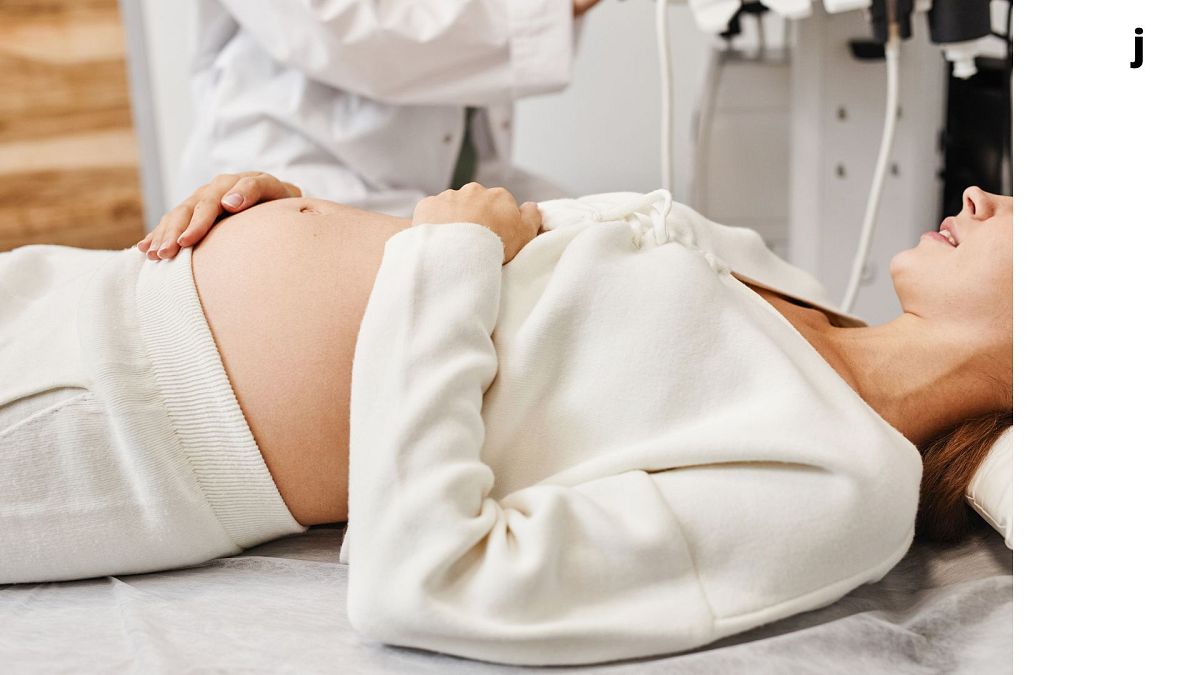Access to fertility treatments varies across Europe even as these procedures become more common.
Bojana Šantić had been trying to get pregnant for five years when her doctor delivered some shocking news: despite being in her 20s, she was already nearing menopause.
Šantic’s doctor said she could keep trying for a couple more years, but the odds were slim. Her relationship didn’t survive, and Šantić, an architect by training, took a break from dreaming about motherhood.
“It was really exhausting, time-consuming, financially exhausting, and it had quite a toll on my mental health and my private life in general,” Šantić told Euronews Health from her home in Croatia.
Eventually, she got together with her current partner, and when she was 38 they decided to try to start a family of their own, this time with the help of fertility treatments using her partner’s sperm and a donor’s egg.
Croatia has an unusual system for fertility care. The government will foot the bill for treatment – but because Croatia does not have local sperm or egg donors, it will instead pay for patients like Šantić to travel elsewhere for care.
So in 2021, Šantić and her partner flew to North Macedonia for an embryo transfer, with most expenses publicly paid.
In 78 per cent of cases like hers, the first round of treatments doesn’t result in a baby, but they agreed to try it just once before giving up.
A few weeks later, she learned she was pregnant – with twins.
“Today when I see them I think, those are the kids that I was destined to have,” said Šantić, whose sons are now 2.5 years old.
Šantić, who is now an advocate for fertility care access across Europe, is far from alone.
Worldwide, approximately one in six people struggle with infertility, which is defined by a lack of pregnancy after a year of regular unprotected sex. That means the official statistics do not take same-sex couples into account.
Fertility treatments are becoming more common in Europe, with more than 1.1 million treatment cycles done at nearly 1,400 clinics in 2021. A recent study found that in the United Kingdom, the number of single women using in vitro fertilisation (IVF) to start a family has tripled over the past decade.
But a tangled web of laws and regulations means access to this care varies considerably from one country to the next – and that even within countries, some groups are more restricted than others.
Who can get fertility treatments in Europe?
In Croatia and many other European countries, same-sex couples cannot access fertility treatments.
Only six countries allow egg donations for gay men, and 21 allow sperm donations for lesbian couples, according to a policy analysis of 49 European countries and territories in 2024.
Surrogacy, when a woman carries and gives birth to a baby on behalf of another person or a couple, is illegal almost everywhere in Europe. And in October, a new Italian law came into force that bans people from travelling abroad for surrogacy, a move that LGBTQ activists said will make it more difficult for gay men to become parents in Italy.
Meanwhile, single women can get fertility treatments with donated sperm in 37 countries, but donated eggs in only 28, the policy analysis found.
Others require women to be below a certain age or to have underlying medical conditions.
“Being generous is expensive … and in some respects, being more restrictive with the social criteria can be considered as a compromise when financial considerations are involved,” Jasmin Passet-Wittig, a senior researcher at Germany’s Federal Institute for Population Research, told Euronews Health.
Even where patients are allowed to get fertility treatments, governments have different approaches to how many treatment rounds they will pay for, how long the waiting lists are, and whether the donations are anonymous or not.
That’s prompted some people to travel overseas for care in what’s been dubbed “fertility tourism”.
“If you ban it, people who can afford to will go abroad,” Anita Fincham, advocacy manager at Fertility Europe, an umbrella group for patient organisations, told Euronews Health.
Is parenthood a human right?
Patients, doctors, and advocates describe fertility care as a human rights and anti-discrimination issue that should be protected by law in the European Union.
For example, Fertility Europe wants EU policymakers to declare that trying to have a child is a universal right, ensure equal access and public funding for fertility treatments, and combat stigma against infertility.
Advocates also hope to capitalise on the political and cultural unease around Europe’s falling birth rates.
In Poland, for example, President Andrzej Duda signed a bill into law last year that restored public funding for in vitro fertilisation (IVF), which was slashed under the former conservative government in 2016.
While the head of Poland’s Catholic church attempted to block the bill, calling IVF “experimentation on man,” Duda’s office cited it as a potential solution to Poland’s “demographic challenges”.
The decision was a welcome one for Maciej Śmiechowski, a Polish professor whose twins were born in 2012 with the help of IVF.
He told Euronews Health that the stigma around fertility care is slowly being eliminated, which could make support for it more politically mainstream.
“The climate around fertility treatment has changed, and the way we talk about fertility treatment has changed,” Śmiechowski said.
Even so, advocates are quick to point out that at its core, access to fertility treatments is a reproductive rights issue akin to abortion or contraception – and any policies to expand fertility care should prioritise people’s autonomy around deciding when and how many children to have.
“We don’t feel responsible for populating Europe,” said Fincham at Fertility Europe.
Checkout latest world news below links :
World News || Latest News || U.S. News
The post As fertility treatments become more common in Europe, who has access? appeared first on WorldNewsEra.

